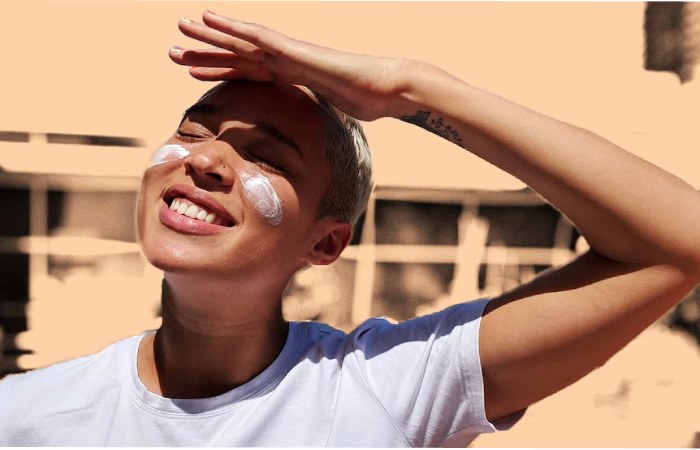Dark skin doesn’t need sunscreen, right? Wrong. It’s a widely held but misguided assumption that having more melanin, the pigment found in the skin that decides on shade, helps protect darker-skinned individuals from the sun.
However, people with dark skin tones regardless of race, ethnicity, or religion, are vulnerable to sun damage, like hyperpigmentation, sunburn, skin cancer, premature aging, and premature aging.
All skin types, regardless of shade, are vulnerable to skin damage caused by UV radiation from the sun’s damaging ultraviolet (UV) UV rays. But, those who have darker skin tones often think that they are invulnerable to sun-induced damage and are not required to wear sunscreen. This is a false assumption. In this article, we’ll explain the importance of using sunscreen for those who have darker skin tones and why it’s as crucial to their health as it is for people who have lighter skin.
Table of Contents
Why darker skin tones require Sunscreen

The darker skin tones are enriched with melanin. It is the pigment responsible for the color of your skin and also provides some natural protection against harmful UV rays from the sun. But the melanin protection may not be enough to stop all forms of skin-related damage. Skin aging, sunburn as well as skin cancer, are the possible outcomes of exposure to UV radiation, regardless of the skin’s color. Actually, those who have darker skin tones are more prone to certain kinds of skin cancers, like melanoma. This is particularly risky in the absence of treatment.
The risks of not wearing Sunscreen
People with darker skin that do not apply sunscreen are in danger of a variety of skin injuries. Sunburn, though less frequent for darker skin tones, is still a possibility and can cause swelling, pain, and the appearance of redness. Long-term exposure to UV rays from the sun can result in premature aging, such as the development of wrinkles, fine lines, wrinkles, and age spots. Additionally, not applying sunscreen may make it more likely to develop skin cancer, which includes melanomas.
The importance of broad-spectrum sunscreen
The most effective way to protect your skin from sun damage is to use a broad-spectrum sunscreen that has an SPF of at least. Broad-spectrum sunscreens guard against UVA and UVB radiations which can be damaging to the skin. UVA Rays penetrate further into the skin, and cause the aging process and aging, while UVB Rays tend to cause sunburn. An SPF of at least a high level will offer the greatest level of protection from both kinds of UV radiation.
Choosing The Right Sunscreen
Skin tones with darker tones need to select the sunscreen that has been designed specifically for their particular skin type. It is crucial to search for a product that is non-comedogenic, and free of scents and other irritants that can cause irritation to the skin. Also, those with darker skin tones should look for sunscreens that have matte or matte-like finishes as certain sunscreens may cause a visible shine to the skin.
Conclusion
In the end, the importance of sunscreen is for those with darker skin tones the same way it is for people with lighter skin. Those with darker skin, do not have to think they are invulnerable to sun-induced damage and should make sure to shield their skin from the damaging effects of UV radiation. Applying a broad-spectrum sunblock with an SPF of at least 7.5 making sure they choose the appropriate sunscreen suitable for their skin type and wearing it regularly can help to protect skin from damage and keep the healthy-looking and youthful skin.
